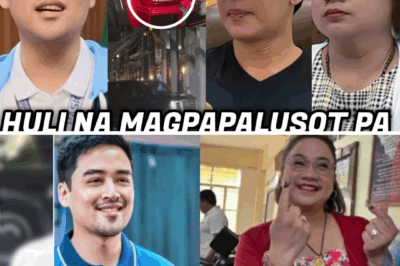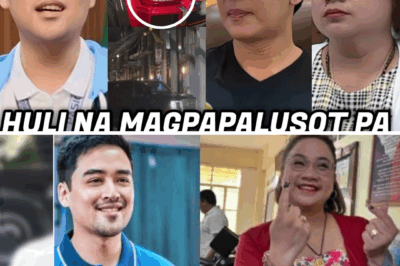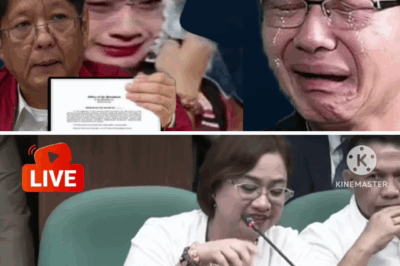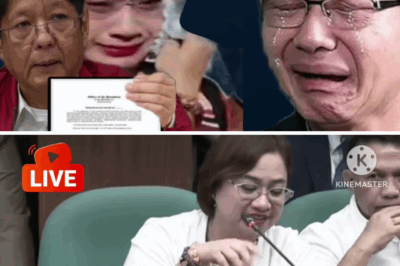Did Korina Sanchez Take a Swipe at Vico Sotto? The Story Behind the Brewing Media-Politics Clash
When veteran broadcast journalist Korina Sanchez spoke on air about the importance of presenting evidence before making allegations, she may have thought she was making a general point about credibility in public discourse. But in the Philippines’ charged media landscape, where politics, journalism, and public perception constantly collide, her words quickly ignited speculation.
Was she throwing shade at Pasig City Mayor Vico Sotto—a public official known for his outspoken comments on governance, transparency, and media practices? Or was her statement merely a principled reminder about journalistic standards?
To understand why her remarks have become a flashpoint, it is important to revisit the chain of events that led to this tense standoff between a respected journalist and one of the country’s most admired young mayors.
Korina’s On-Air Remarks
On September 1, 2025, during her appearance on Agenda, Sanchez spoke firmly about the need for proof when making claims.
“The most important thing… to back up what you’re saying as credible is you have evidence before you talk. Right? It’s difficult when you say something but you don’t have evidence. […] You need to have a receipt before you speak.”
Her words—particularly the use of the Filipino slang resibo (meaning receipts, or proof)—resonated strongly with the public. Within hours, social media buzzed with interpretations that the veteran broadcaster was addressing, whether directly or indirectly, the accusations made by Mayor Vico Sotto two weeks earlier.
Vico’s Explosive Facebook Post
On August 21, 2025, Mayor Sotto took to Facebook to express suspicion about certain media practices. Without naming individuals outright, he suggested that some interviews and features on controversial contractor couple Sarah and Curlee Discaya might have been the product of hefty “placement fees.”
His post read:
“Uy teka, bakit kaya handa ’to magbigay ng P10 million para lang magpa-interview sa akin?”
(“Wait, why would someone be ready to give P10 million just to get an interview with me?”)
The implication was clear enough for many online observers. The Discayas, whose names had recently surfaced in Senate investigations into allegedly anomalous contracts, were featured in multiple television programs. Among these were Rated Korina and Korina Interviews, both hosted by Sanchez herself.
Screenshots of the Discayas’ televised interviews circulated widely, fueling speculation that the mayor was indirectly pointing a finger at Sanchez and her production team.
Immediate Pushback from Korina’s Camp
The following day, the production teams behind Rated Korina and Korina Interviews issued a strongly worded statement. They categorically denied that any P10-million placement fee—or any placement fee at all—was paid to air the Discaya interviews.
“Our programs are not investigative reports but human-interest and lifestyle features,” the statement read. “To allege otherwise is not only misleading but constitutes cyber libel.”
The use of the term cyber libel signaled how seriously Sanchez’s camp regarded the insinuations. They framed Sotto’s post not as a casual observation but as a damaging public accusation with potential legal consequences.
In the Philippines, where defamation laws are strict and online posts have been increasingly scrutinized in court, such a claim carries real weight.
A History of Controversial Interviews
The Discaya couple’s appearances on Philippine television did not happen overnight. According to public records and independent reporting:
September 2024: Julius Babao featured the Discayas in one of his programs.
November 24, 2024: The Discayas appeared on Rated Korina.
January 5, 2025: They were interviewed again on Korina Interviews.
At the time, the Discayas were not widely known beyond their business dealings. But as Senate hearings in 2025 revealed questionable contracts and alleged irregularities, the earlier interviews drew new scrutiny.
Critics argued that these television features had effectively “softened” the public image of the couple, portraying them as ordinary entrepreneurs or philanthropists, rather than controversial contractors.
By mid-2025, the interviews had been quietly removed from official YouTube channels—a move that only deepened suspicion and fueled conspiracy theories online.
Public Reactions: Divided Opinions
Sotto’s reputation as a reformist mayor, often unafraid to challenge entrenched systems, earned him applause from his supporters for speaking out. For them, his post represented a much-needed call for transparency in both governance and media.
“Finally, someone brave enough to question the pay-to-play culture in journalism,” one netizen wrote.
On the other hand, defenders of Sanchez—herself a seasoned broadcaster with decades in the industry—viewed Sotto’s remarks as reckless. Without hard proof, they argued, he had unfairly tarnished the credibility of a respected journalist.
“Evidence first, accusations later,” another social media user posted, echoing Sanchez’s own words.
The Larger Media-Politics Landscape
This clash cannot be viewed in isolation. It reflects deeper tensions between political figures and the press in the Philippines.
Journalists often face accusations of bias or hidden agendas, while politicians, especially reform-minded ones like Sotto, sometimes position themselves as watchdogs against both corruption in government and questionable practices in media.
At the same time, the phenomenon of “sponsored content” and “placement fees” in Philippine television is not new. While not always illegal, it raises ethical concerns when audiences are not clearly informed whether an interview or feature has been paid for.
Sanchez’s programs have long walked the line between news and lifestyle, offering human-interest stories that attract advertisers and sponsors. The Discaya features, however, blurred that line at a politically sensitive moment, leaving room for suspicion.
Was Korina’s Comment Really a Swipe?
So, was Sanchez’s September 1 statement a direct jab at Sotto? She never mentioned him by name, and her phrasing could be applied broadly to anyone making unsubstantiated claims.
Yet the timing was difficult to ignore. Coming just days after her team’s official rebuttal to Sotto’s post, many interpreted her remarks as a deliberate clapback.
For observers, the episode illustrates how coded language, timing, and context can transform a seemingly general comment into a perceived counterattack.
What Happens Next
As of early September 2025, neither party has taken further legal action. Sotto has not retracted or clarified his post, while Sanchez has not expanded on her “resibo” remarks.
The controversy, however, remains alive in the public imagination. With Senate hearings on the Discayas still ongoing, both politicians and journalists find themselves under the microscope.
For Sanchez, the challenge is to protect her credibility without escalating a public feud with a popular mayor. For Sotto, the task is to balance his anti-corruption crusade with caution in making accusations that could expose him to libel charges.
Conclusion: A Mirror of Philippine Society
At its core, this dispute is about more than just one journalist and one mayor. It reflects the uneasy relationship between media and politics in the Philippines—a relationship marked by suspicion, occasional collaboration, and frequent clashes.
When a journalist as seasoned as Korina Sanchez feels compelled to defend her programs against allegations of pay-to-play, and when a mayor as admired as Vico Sotto risks backlash for calling out perceived irregularities, the stakes go beyond personalities.
The public, caught in the middle, is left to navigate competing claims of credibility, transparency, and accountability. And in a digital age where a Facebook post can spark national headlines, the demand for “resibo” has never been louder.
News
💥Vico Sotto SLAMS Discayas! 28 hidden luxury cars exposed, lies unraveled, Senate probes corruption—nation in shock over scandalous cover-up!💥
Vico Sotto Exposes Discaya Family Over Hidden Luxury Cars Pasig City Mayor Vico Sotto has publicly criticized contractor couple Sarah…
💥Vico Sotto EXPOSES Discayas’ hidden luxury cars! Lies, excuses, and scandal erupt—28 vehicles vanished before Bureau of Customs raid!💥
Vico Sotto Exposes Discaya’s Lies Over Hidden Luxury Cars In a recent turn of events, Pasig City Mayor Vico Sotto…
🔴 Julia Barretto Breaks Silence on Breakup with Gerald Anderson — Alleged third-party involvement sparks widespread speculation, while Gerald remains silent. Fans are eager for the full story.
Julia Barretto Breaks Silence on Breakup with Gerald Anderson: Third-Party Speculation Sparks Buzz In a revelation that has captivated fans…
🔴 Julia Barretto reveals breakup truth with Gerald Anderson—third-party rumors spark frenzy, fans demand answers, Gerald stays silent! 🔥
Julia Barretto Breaks Silence on Breakup with Gerald Anderson: Third-Party Allegations Surface In a recent revelation that has sent shockwaves…
Senators Escudero and Villanueva sentenced to life amid ghost project scandal—Philippines reels as corruption, betrayal, and political intrigue unfold.
Breaking: Senators Escudero and Villanueva Sentenced to Life Imprisonment in Massive Corruption Scandal In a stunning verdict that has sent…
Senators Escudero and Villanueva sentenced to life over ghost projects—shocking scandal rocks the Philippines, leaving nation in disbelief.
Breaking News: Senators Escudero and Villanueva Sentenced to Life Imprisonment Amidst Ghost Project Scandal In a shocking turn of events,…
End of content
No more pages to load












